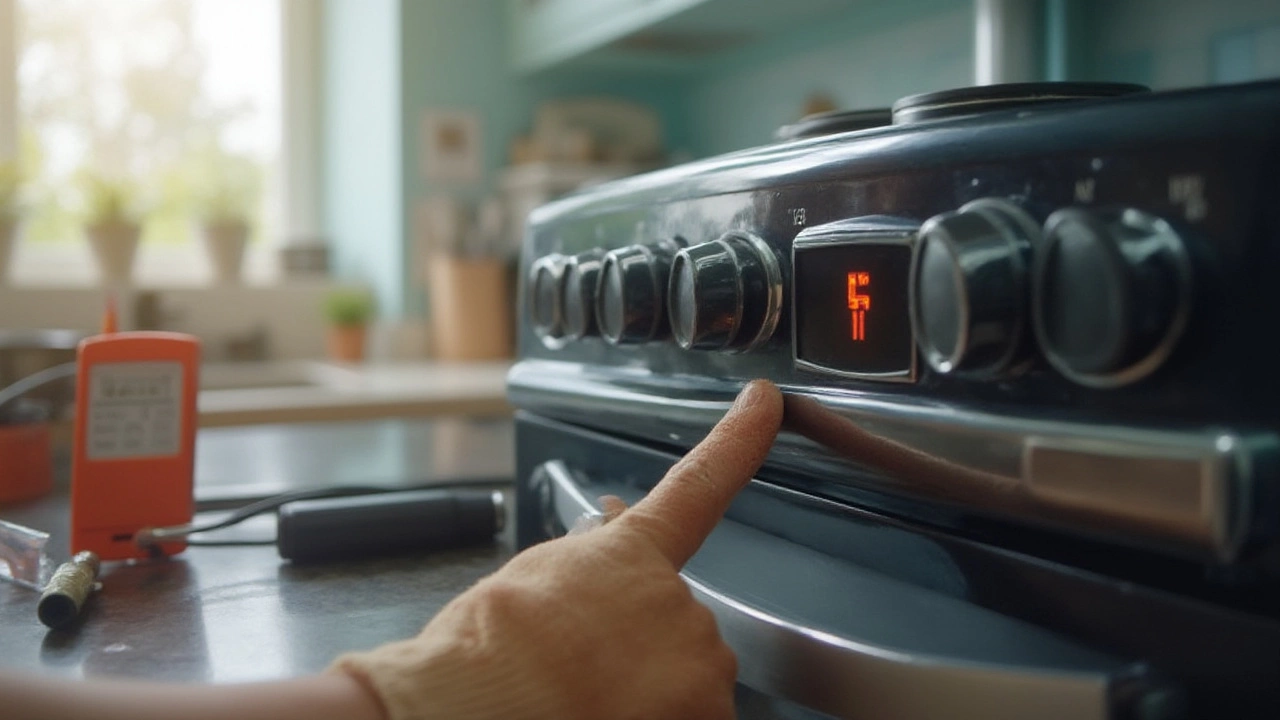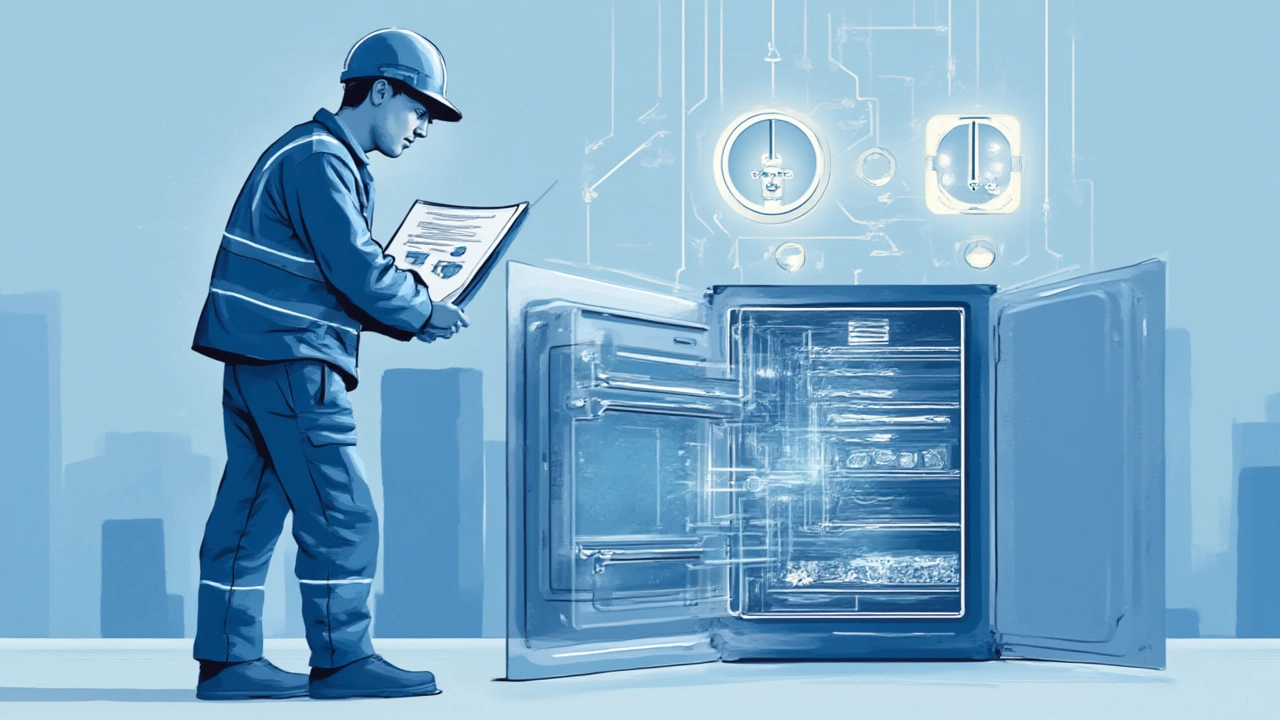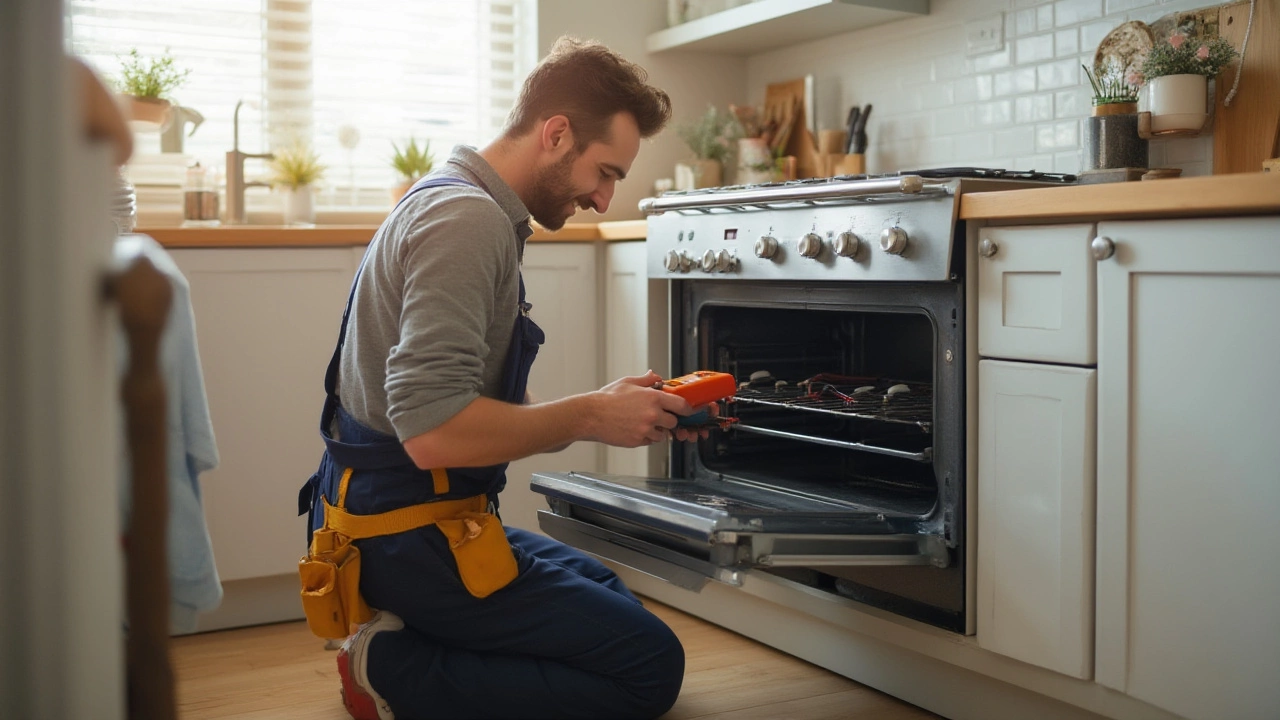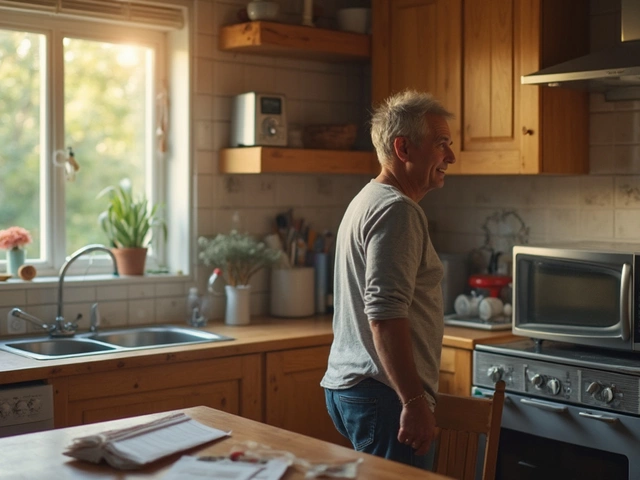Picture this: it’s Friday night, you’ve just seasoned the perfect chicken, and the oven door is preheating—or at least, it’s supposed to be. Nothing happens. Silence. Anyone who’s had an electric oven tank at the worst possible moment knows the feeling, but here’s the kicker—most people don’t actually know who to call. Electrician? Appliance specialist? A handy friend with a YouTube channel? It’s a debate as old as the circuit breaker itself, and it can make or break dinner plans, family gatherings, or even your Sunday bake-a-thon. So, when your trusty electric oven goes dark, can an electrician really swoop in and save your meal?
Understanding What Electricians Actually Do
It’s easy to think of electricians as fixers of wires, breakers, and scary sparking things behind walls. But their skill set runs way deeper than that. Electricians are licensed pros who know the electrical code inside out. They spend years in training—sometimes more than 8,000 hours between school, apprenticeships, and hands-on experience—so they don’t just know how to install a light fixture, they understand the heart of your home’s electrical system. In the UK, for example, a Level 3 NVQ Diploma in Electrical Installations is standard, while in the US, most states require license exams that test knowledge well beyond basic house wiring.
Why does this matter for your electric oven? At its core, an electric oven is basically a box of wires, heating elements, fuses, thermostats, and sometimes more brains than a smart TV. When that oven stops working—whether it won’t heat, cuts out mid-bake, or just flashes cryptic error codes—about half the time, it’s an electrical issue. That might be a blown fuse, a burnt wire, or a problem with how the oven’s plugged in. Electricians spend a good chunk of their day wiring up major appliances, fixing switches, and making sure your house doesn’t burn down when the power surges. They know how to test circuits, check for continuity, and spot dangerous shorts before you even know what a multimeter is.
What people miss is that not every oven problem is electrical. Electricians can absolutely test, repair, or replace the wiring to your oven, fix dodgy connections, and sort out wall sockets or dedicated oven circuits. If your oven isn’t getting power—no lights, no click, no beeps—that’s squarely where they shine. But if the issue is deep inside the oven itself (think: broken heating element, busted temperature sensor, digital display problems), you might need to tag in a different pro. Electricians know when to stop, too: if your oven’s problem is a specialty part or a feature unique to that model, they’ll refer you to a certified appliance repair tech.
If you’re still not sure who you need, the clue is this: if you see, hear, or smell a burning wire, if your breaker trips when you turn on the oven, or if power is intermittent, call an electrician. For anything else—like an oven that heats unevenly, a fan that rattles, or a door that won’t close—it’s probably time for someone with oven-specific training. The best electricians are honest about this; they’ll diagnose what they can, but won’t tinker with control panels or electronic boards if that’s not their turf.
Common Electric Oven Problems and Who Fixes What
Let’s jump right into the nitty-gritty—because knowing who does what can save you time and money. Most electric ovens break down for a handful of reasons, and not all need an electrician, even if the oven plugs into the wall. If your oven just won’t turn on, the *most important* keyword to remember is “power.” Is there power? If not, you’re looking at a job for an electrician. They’ll check your fuse box, circuit breaker, wiring, and confirm the socket is grounded and fit for use. A fascinating tidbit: oven wiring is heavier-duty than normal outlets, and even minor issues can cause big losses in power—something most DIYers miss.
Here’s a basic rundown, so you know which pro to call:
- No Power at All: The oven’s display is dark, no lights, nothing. Usually an electrical supply issue—call an electrician.
- Oven Trips the Breaker: The circuit trips every time you use the oven. This could be a short circuit in the wire, a dodgy socket, or water ingress behind the plug. Electrician territory.
- Heating Element Not Working: Oven turns on but doesn’t heat up. Possibly a blown heating coil. This part is inside the oven and, technically, appliance repair pros usually swap these out—but a handy electrician can often handle it, too, if the oven isn’t under warranty.
- Controls or Display Issues: Oven turns on, but the touchscreen, dials, or timers are glitchy. Appliance specialist job. Electricians will rarely mess with control boards since they’re unique to each brand.
- Strange Smells, Sparking, or Burning: Call an electrician pronto. This means damaged wiring or an unsafe appliance. Don’t try to use the oven in the meantime; safety first, meal plans second.
There are gray areas, of course. Sometimes electricians double as appliance repairers, especially in smaller towns. Some appliance techs are licensed for minor electrical fixes, but never for working inside your house’s main power supply. It’s all about knowing your oven’s symptoms, and trusting your gut—if something feels dangerous or out of the ordinary, err on the side of safety and call a pro.

What Electricians Check Before Repairing an Oven
Ever wondered what actually happens during a call-out? Unlike in movies, fixing an oven is more than just poking around with a screwdriver and looking thoughtful. Good electricians are systematic; they’ll run through a checklist faster than you can explain last night’s failed roast. Here’s what many look for—even before they reach for a tool.
- Is the Oven Actually Plugged In? This sounds obvious, but you’d be shocked how many “broken” ovens get fixed with a quick plug-and-play.
- Check the Wall Socket and Breaker: They’ll test the socket with a voltage meter, make sure it delivers the right juice (usually 240V in the UK/Europe, 110/220V in the US), and see if the breaker is functioning.
- Inspect the Oven Cord and Plug: Frayed wires, loose prongs, burn marks—these are all warning signs.
- Check Local Isolation Switch: Most kitchens now install a big red switch nearby (“cooker switch”), which can get flipped off by accident.
- Test the Fuse or Fusebox: Many ovens have their own fuse inside the plug or the wiring outlet. They’ll check and swap it if needed.
- Examine External Wiring: Especially in older kitchens, wires can degrade or get chewed by curious pets (don’t ask how I know… let’s just say Lorelai isn’t the only one chasing the cat out of the kitchen).
Here’s a cool stat worth knowing: About 45% of electric oven failures are due to power supply issues, not the oven itself. In these cases, a visit from an electrician often fixes things within the hour. If everything on the list checks out, only then do they start poking around inside the oven, checking internal fuses, elements, or thermostats—if their training and insurance allow it. They’ll leave anything brand- or model-specific, especially circuit board work, to an appliance specialist.
If you want an idea of the types of faults and who to call, see the table below:
| Fault / Symptom | Who to Call |
|---|---|
| No power to oven, dead display | Electrician |
| Oven trips the breaker immediately | Electrician |
| Heating element won’t heat up | Appliance Repair (sometimes Electrician) |
| Buttons, lights, and timers not working | Appliance Repair |
| Burning smell, sparks, smoke | Electrician, Emergency |
| Oven runs but cooks unevenly | Appliance Repair |
Savvy electricians also check if your oven is still under warranty—some repairs can void your coverage, so be sure to ask up front.
Dangers of DIY and Why Professional Oven Repair Matters
It’s tempting to grab a screwdriver and unleash your inner handyperson, especially with dozens of YouTube quick-fixes out there. But electric ovens are no place for guesswork. There are live circuits, heavy currents, and no room for error. I’ve seen too many people, usually trying to impress the family (“Don’t worry, honey, I watched three videos!”), end up frying a replacement part, tripping the main breaker, or—worst case—getting shocked. Here’s the real talk: most home insurance policies won’t cover fire or injury if repairs were done by an unqualified person. Those disclaimers aren’t there for show.
There are four big reasons to call a pro:
- Safety: Electric ovens can draw anywhere from 10 to 50 amps of current, which is more than enough to cause a fatal shock. Protective relays and cut-offs are hidden, and you can’t always see when a circuit is still hot.
- Diagnostic Accuracy: Pros use specialized tools—multimeters, clamp meters, thermal cameras. They don’t just poke and hope; they methodically test every single point.
- Quick Fixes and Fewer Surprises: Trained eyes pick up faults that newbies miss. What looks like a broken oven could be a £2 fuse… or a major wiring meltdown.
- Legal and Insurance Cover: If you ever sell your house, or if worst happens and something breaks, a paper trail from a licensed electrician or appliance tech saves you serious hassle.
I've had friends swear they fixed their oven for the price of a coffee, only for the thing to arc and spark when baking day rolls around. The cost and headache of fixing a bodged repair almost always trumps just calling the right pro in the first place. Plus, the peace of mind is worth it—nobody wants to explain to their spouse why the kitchen smells like burning plastic.
If you ever get itchy fingers, just remember: those digital oven controls and glass doors hide a spider’s web of wires and circuit boards. Get too curious, and you might be ordering takeaway for weeks. Leave it to people who’ve been zapped (safely) before—they know the dance better than anyone.

When to Call an Electrician, Appliance Repair, or Both
For anyone staring at a silent oven right now, wondering just who to phone first, here’s a little checklist you can follow. If your oven is brand new—less than a year old—always check the warranty info, because most manufacturers will send their own repair team for free. Don’t chance it. For anything older, use the following guide:
- Try another device in the same socket outlet. If it works, the problem’s likely inside the oven itself—think appliance repair. If nothing works, or the breaker trips, call an electrician.
- Listen and look: Are there funny smells, sparks, popping, or buzzing? Electrician, immediately. Shut off power at the main switch until they arrive.
- If the oven’s digital display is on, but the oven itself won’t heat or only some functions work, appliance repairers are your best bet. But if there are signs of burnt wires or melted insulation, get an electrician first to ensure your house isn’t at risk.
- Your oven’s old and you hear a loud *pop* or the room goes dark? Electrician. That’s classic for a short circuit or tripped main breaker.
- Finally, if you’ve already had an electrician check things and they say the mains are fine, an appliance specialist has the parts and know-how for deeper repairs.
If you live in a multi-unit building (a flat or condo), some oven faults could even be traced to shared electrical circuits—so a building electrician might step in. And if you find yourself calling for repairs every few months, it may be time to consider upgrading that oven or at least investing in an extensive check of your kitchen’s electrical layout. A surprising stat: Nearly 80% of electric oven users face a breakdown at least once within the first seven years of ownership, usually due to either wiring faults, broken elements, or control panel glitches.
On the bright side, most repairs don’t require full oven replacement, and with today’s diagnostic gadgets, experienced electricians and appliance repair specialists can tell you what’s wrong quickly and often cheaply. Ask about fixed-price callouts, and get a clear quote before agreeing to parts or labor—it’ll save you future headaches. If you can, take photos or jot down error codes before they vanish—every bit of info helps the pro you call.




